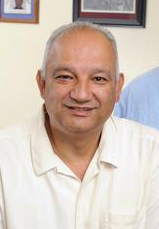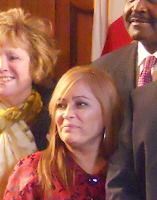Take My Council, Please: Residency Evil Delayed Again…
SPRINGFIELD — Politics and its progeny populism were at play in Monday’s meeting which partially reignited an old debate while the other was just theater. An issue long ready to be put to bed was put off as last minute and uninformed objections led to reappearance of the Council’s increasingly invoked Rule 20.
Rule 20 is a Council procedural, used with increased frequency, that ends debate on an agenda item until the City Comptroller can evaluate its financial impact.
As with most meeting, the agenda contained numerous non-controversial items. Among them included grants to the Health & Human Services Department, Utilities Reports and budget transfers. The HHS grants ranged in use from compliance with age-restrictions on tobacco purchases to programs for youth interested in health related careers.
The Housing and Community Development department and the Animal Control office also received grants and donations. Assistant City Solicitor Thomas Moore also requested the Council discharge an uncollectible mortgage going back twenty years on a piece of property. It was created for a property near Mason Square, but the mortgagor went under, but the mortgage lien remained on the property’s title. The city, which owns the property now, needs to discharge its interest in order to convey title.
The budget transfers included use of unused funds from the current fiscal year to pay for a new police radio system and to pay for minor expenses related to staff changes and supplies within the mayor’s office.

Jose Claudio (candidate website)
Also on tap and approved without dissent were acceptances for numerous streets. Councilors also approved a resolve calling on the Bureau of Public Works to rename a stretch of Plainfield Street Barbara Rivera Way, after the leader of the late, former New North Citizens Council head. In attendance for the item were, among others, the city’s Elder Affairs director Janet Rodriquez Denney, Rivera’s daughter, Norman Roldan, the School Committee member for Wards 1 & 3, and Jose Claudio, the agency’s current leader. Claudio is also a candidate for the Ward 1 City Council seat.
The mayor’s latest nominee to the Mobile Home Rent Control Board, Jesus Arce, was confirmed unanimously by the Council.
But it was a resolve opposing the closure of the Pine Point (and to a lesser extent the Liberty Library) and the final stages of a revision to the Residency Ordinance that energized councilors most.
The resolve opposing Pine Point’s closure came at the behest of Pine Point luminary Gloria DeFillipo and the Councilors that represent the area, Ward 5 Councilor Clodo Concepcion and Ward 8 Councilor John Lysak.
Library officials defended the closure backed by Ward 2 Councilor Mike Fenton, the only councilor who did not vote for the resolve. Library Director Molly Fogarty said that in contrast to last year, when the closures were essentially done with little forethought, these closures were recommended based on a consultant’s report.
The closures were part of a sustainability plan developed by the library to preserve library services long-term. Although two branches would close (the facilities would be used for other educational purposes), in exchange, branches hours would nearly double to 30 from 18 hours per week.
Concepcion and Lysak were not persuaded. Lysak went as far to start ad hoc bargaining with Fogarty suggesting alternate number of hours a branch could be open in order to preserve Pine Point. Fogarty said that this was impossible due to the staffing needs of the branches and because many branches share staff. If the number of hours goes up, either the city would have to hire more staff or it would have to reduce the number of libraries it operates.
The resolve was non-binding and it is unclear whether or not it would move Fogarty and the mayor to reverse course. The Council could leverage its budget cutting authority to force the mayor to the bargaining table, but it seems unlikely that councilors supporting the resolve would back it up with such a move.
Another contentious point arose when Ward 1 Councilor Zaida Luna invoked Rule 20 on on changes to the residency ordinance delaying a final vote. However, her reasons for doing so were difficult to discern. They appeared based in “concerns” raised by at-large Councilor Jimmy Ferrera.
The final vote had already been delayed from last meeting since Lysak and Ward 3 Councilor Melvin Edwards were absent after the latter’s wife was attacked by a dog. With both present, Fenton, who chairs the special Residency Committee, sought final step to enact the ordinance. The change would eliminate waivers for department heads, essentially mandating future department heads live in the city. Lower level employees could live out of the city, but only after the job was re-bid to give residents another chance to fill the position.
Ferrera, the Council President. ceded, the podium to Vice-President Bud Williams and attempted to make himself out to be even more pro-Residency than Fenton and many other councilors who have pursuing this issue. Specifically, he singled out a part of the change that would leave intact the existing waivers that current employees have, inveighing against “subsidizing” other towns where city workers live.
Two things suggested that his complaint was little more than a ploy. Ferrera stammered through a tortured explanation of his concerns that sounded as foreign to him as it did to those present. He seemed to want these waivers revoked (and employees move or fired), but the City Solicitor warned in the past that this could expose the city legally. As Ward 6 Councilor Ken Shea noted, such a move might be an unconstitutional breach of a contract.
The other sign was Ferrera’s decision to wait until the last minute in order to bring this up. He claimed that he had “researched” the issue, but this was the fourth time the item had been before the Council and yet he deigned to wait until final passage. This prompted Fenton to note that his committee meets every other Friday and that these concerns could have been brought up at any meeting. Moreover Ferrera’s inflammatory language hardly lent itself more to demagoguery than a fair concern.

Councilor Zaida Luna (WMassP&I)
Ferrera’s concerns became all the more bizarre when Luna seemingly backed the Council President. She suggested that passing the ordinance as proposed would only perpetuate a racist system that denies city minorities jobs. A perplexed Fenton challenged that assertion, noting that the proposed ordinance would end any such unfairness that sends city jobs to non-residents.
Williams then ceded the podium to the next senior member of the body, at-large Councilor Kateri Walsh, so that he could speak (technically, Tim Rooke is the most senior, but chivalrously deferred to Walsh). Williams appeared to back Ferrera, but it was a half-hearted defense from Ferrera’s closest ally on the Council. Williams as much admitted that he would vote for the residency proposal if a final vote were allowed.
A motion to committee was made, but it failed on an 8-5 vote. Ferrera, Rooke, Luna, Williams and Concepcion voted in favor of committee. It appeared that the Council would take the final vote, but then Luna invoked Rule 20. Walsh, among the staunchest defender of the rule, as Parliamentarian, hesitated to immediately end debate. She questioned whether this was a true financial matter.
A moment of indecision crossed Walsh’s face as she weighed her own adherence to the rules against a clear appreciation that this issue had dragged on long enough. But in the end, she fell to the rules and debate ended. Neither Ferrera nor Luna responded to an email requesting comment.
The meeting closed as Fenton introduced a measure that would, if approved by the Council, mayor, legislature and then the people of Springfield, hold elections to fill vacancies in ward seats. He noted that under the current rules, in ward races the next highest vote-getter, that is the loser, would fill a vacant seat. This is what happened in 2011 when Amaad Rivera took the Ward 6 seat.
Fenton also noted that this would also allow a write-in candidate, even if he only received one vote, to take the seat. However, because the item was introduced under suspension, he asked that it be sent to committee, which it was.
Ferrera’s sudden last minute concerns smacked of politics. Ferrera has used his Presidency in recent weeks to drum up press for himself. Often these have been attempts, with varying degrees of success, to paint himself in the best light possible. However, this also betrays Ferrera’s own fears about reelection. Ferrera had long be thought the weakest of the five at-large councilors, but these repeated stunts only reaffirm that assumption, rather than project presidential strength and leadership.






